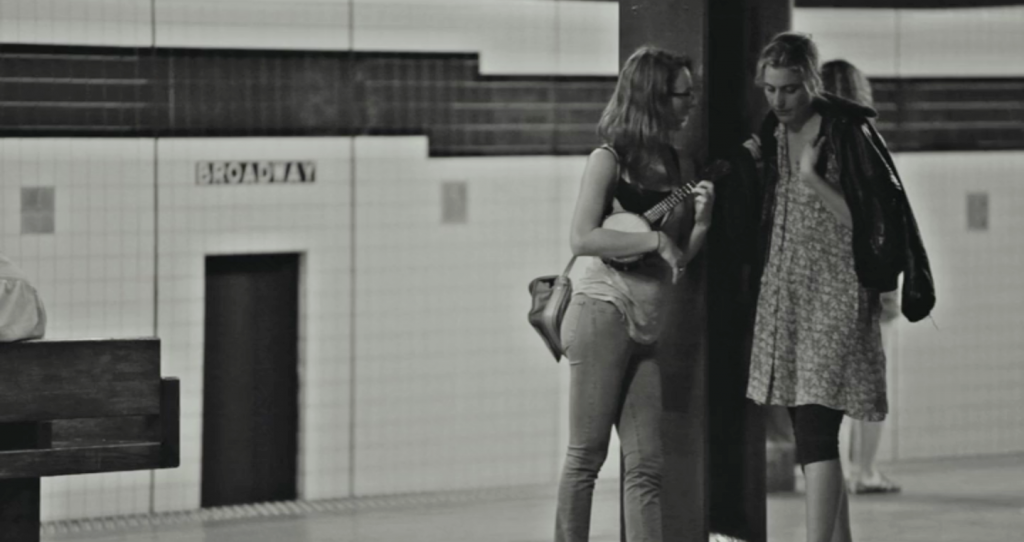It was while working on Greenberg (2010) that writer/director Noah Baumbach began his relationship with Greta Gerwig. Subsequently, the pair penned the screenplay for Frances Ha (2012) together, with Gerwig starring and Baumbach directing. What is remarkable about Frances Ha is that for the first time Baumbach is able to remove himself from the explicitly autobiographical material of his earlier work and engage in a kind of filmmaking that challenges his aesthetic and gives a strong female voice to his particular brand of cinema.

Like director Whit Stillman, all of Noah Baumbach’s earlier films draw much of their narrative and their characters from his own life, particularly Kicking and Screaming (1995), Mr. Jealousy (1997), The Squid and The Whale (2005), Margot At The Wedding (2007), and Greenberg (2010). As a result of Gerwig’s presence as a co-writer Baumbach is able to transform his experiences, distilling from them the essential and repackaging those experiences in a more fictitious narrative. Gerwig must also be credited for giving a living organic voice to the film’s female protagonist, for up till now the women in Baumbach’s films have remained stoic and cold intellectuals who had disengaged from the people around them.
Thematically Frances Ha has more in common with Kicking And Screaming than it does any other Baumbach film (Josh Hamilton even makes a small appearance in the film) since its focus is on a character immediately after graduation. But Baumbach’s latest meditation on post-graduate ennui is far more cinematically refined than it was when he first appeared with Kicking And Screaming. The black and white digital cinematography of Frances Ha recalls the color palette of Truffaut’s 400 Blows (1959) and Jules et Jim (1962), while the shot composition of interiors deliberately references the family dramas of Eric Rohmer and Andre Techine (not to mention a direct visual quotation from Leos Carax’s Mauvais Sang). This homage does not fall into the trap of indicating a debilitating obsession with French film on the director’s part, but demonstrates instead the filmmaker’s ability to apply a specific national technique to an entirely American phenomenon of “youth culture”.
Frances Ha also marks a return to a more “mundane tragedy”, making it’s narrative center a series of every day events that when magnified become either tragic or comic. This aligns Frances Ha closely with the early films of Jim Jarmusch, particularly Stranger Than Paradise (1984) and Down By Law (1986). Baumbach is less dependant on moments of sudden change and violence to propel his characters, opting instead to allow the characters themselves to manufacture their own momentum with neuroses, ambition, greed and sexuality. Thus Frances Ha negates many of the standard narrative tropes of contemporary independent filmmaking and achieves a more classical cinematic experience.
This review was first published in 2012.
